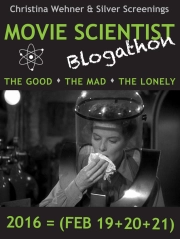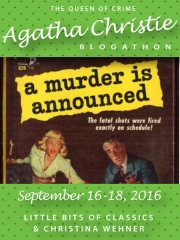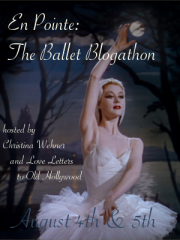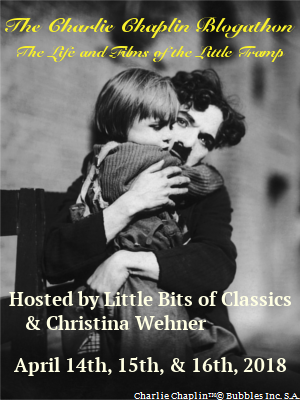 Hallelujah, I’m a Bum is an idiosyncratic musical that manages to be both cynical and sweet. It stars Al Jolson, contains a number of extended rhythmic sections where characters speak in rhyming couplets, places Frank Morgan in a romantic role and celebrates careless irresponsibility in 1933, at the peak of the Depression. Although it’s not as well known as Jolson’s history-making The Jazz Singer, it is often mentioned as his best film, with his most understated and nuanced performance (though I’m not in a position to judge, having only seen him in the later The Rose of Washington Square). It is also possibly his most accessible film (apart from the film’s idiosyncrasies), because he does not perform in his trademark black face.
Hallelujah, I’m a Bum is an idiosyncratic musical that manages to be both cynical and sweet. It stars Al Jolson, contains a number of extended rhythmic sections where characters speak in rhyming couplets, places Frank Morgan in a romantic role and celebrates careless irresponsibility in 1933, at the peak of the Depression. Although it’s not as well known as Jolson’s history-making The Jazz Singer, it is often mentioned as his best film, with his most understated and nuanced performance (though I’m not in a position to judge, having only seen him in the later The Rose of Washington Square). It is also possibly his most accessible film (apart from the film’s idiosyncrasies), because he does not perform in his trademark black face.
Al Jolson is Bumper, a hobo who is called the Mayor of Central Park in New York City, where many hobos hang out. The real mayor of New York City is John Hastings (Frank Morgan), a worldly and dapper man who owes his life to Bumper. Hasting and Bumper are old friends and since Bumper won’t let Hasting get him a job, Hastings frequently passes cash to him.
Among Bumper’s friends are Acorn (Edgar Connor), who travels with him everywhere, Egghead (Harry Langdon), who is actually not a hobo but a socialist who believes in work and has a job picking up papers in the park, and Sunday (Chester Conklin), who drives people in his horse and carriage.
Although many films of 1933 dealt with the Depression, Hallelujah, I’m a Bum addresses it in a somewhat unique way: it romanticizes it. Bumper is a carefree and happy guy without strings, worries or fears who lives in good comradeship with all his friends. Of course, the cynic might point out that it’s because he is, as Egghead accuses him, a plutocrat at heart. He’s got a good thing going; deference from his peers and money from Hastings.
In contrast to Bumper is Mayor Hastings, a man of the world who must kiss babies and lay cornerstones to schools, even though he doesn’t care about it, thus satirizing the system that Bumper is successfully avoiding. What Hastings does care for is his mistress, June (Madge Evans). He’s crazy about her, but convinced that she’s having an affair with another man. His jealousy becomes so strong that she tries to commit suicide by jumping off a bridge.
June is rescued by Bumper, but unfortunately she can’t remember anything. Bumper is smitten, determined to take care of her, and she looks to him like a trusting child. But Bumper realizes that she can’t live in the park like he does. He needs to get her an apartment and in order to do that, he needs to get a job (which nearly causes a riot in Central Park when the work-averse hobos hear of it – non-work is a creed with them). But Bumper has fallen hard for her and begins to dream about working and making a home for June, who he calls Angel since he doesn’t know her name.
He works diligently at a bank (stamping signatures on official letters; Acorn folds towels) and in the evening visits Angel at her apartment, bringing her small presents. She is delighted with him and everything and his only fear is that when she regains her memory, he’ll lose her.
But soon Bumper discovers that Angel is really June, the missing mistress of Hastings, who is grieving and contrite that June left him. When Bumper does discover it, he never hesitates, he simply brings Hastings to June, who recognizes him, regains her memory, but seems to forget all about Bumper and recoils when she sees him.
It is a great performance by Jolson, who simply sits quietly and lets you read the heartbreak on his face, though also gentle, selfless acceptance. Jolson evidently was much more hammy in his other films, though the two I’ve seen him in so far, he’s been relatively restrained, though still charismatic. The actor was apparently anything but gentle in his personal life, but in the film, he plays a really sweet guy underneath the carefree hobo cockiness.
Hallelujah, I’m a Bum surprised me by having more heart than I was expecting. I thought it was going to go pretty hard on the political satire, which it certainly is, but the gentle touch is what really stood out to me, as represented by Bumper. His world as a hobo, outside of civilization, represent a kind of state of nature, though the script is too wise to totally idealize the hobos, who promptly forget about how much they don’t need money to chase Bumper around the park when he discovers a $100 bill that he intends to return. Even Egghead, the socialist, gives chase and wants a piece of it until Bumper reminds him that he needs to be ideologically consistent.
But when June loses her memory it is like she is reborn from worldly woman to trusting and childlike. Being a bum, not working, makes you outside of the system. Bumper, Acorn and his fellow hobos have an almost philosophical aversion to work, as if even to participate in sordid business taints one. But once Bumper begins to care for June, he can no longer afford to stay outside the system. His freedom comes from being unattached to anyone and when he loses June to Hastings, he regains his freedom.
Hallelujah, I’m a Bum also gives Frank Morgan a completely uncharacteristic role of sophisticated, casually corrupt and dapper romantic lead who wins the woman in the end. It’s the first time I’ve seen him play anything other than variations on his Wizard of Oz persona and he’s quite good at it, much less over-the-top than usual.
The songs were written by the songwriting team Richard Rodgers and Lorenz Hart, whose success occurred primarily on the stage, but they did have a brief Hollywood fling in the early thirties. One musical was Love Me Tonight, with Maurice Chevalier and Jeanette MacDonald, and another was Hallelujah, I’m a Bum. Ultimately, they preferred writing for the stage. Their score for Hallelujah, I’m a Bum isn’t quite as full of future standards as Love Me Tonight. It is a bit more cerebral, especially with all the talky/singing/rhyming sections. However, there are two songs that stand out.
One is the title song, “Hallelujah, I’m a Bum,” which Bumper sings celebrating the hobo lifestyle while June is contemplating suicide.
The other is the genuine, though lesser-known standard, “You Are Too Beautiful,” which Bumper sings to June in a very sweet scene.
If you want to hear the full song, Jolson recorded it later.
And here is an example of the rhyming couplets. Bumper has just returned from a trip down South and is being greeted by his fellow hobos, but before they discuss politics Egghead arrives.











